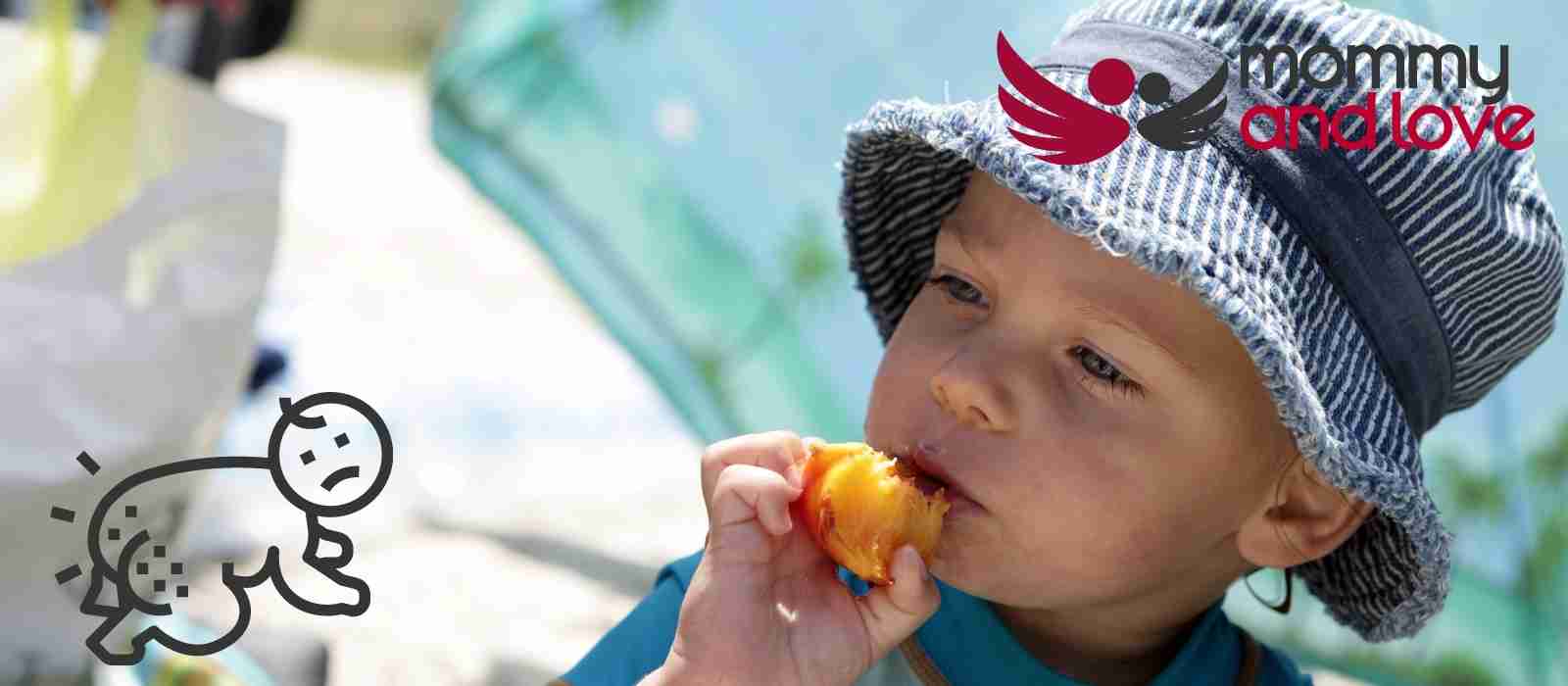Peaches are a delicious summer fruit, but can they cause diaper rash? Some parents believe that peaches may be to blame for their baby’s diaper rash.
In this blog post, we’ll explore whether or not there is any truth to this claim and offer some tips on how to avoid diaper rash. Keep reading to learn more!
Are peaches good for babies?
Yes, but there are certainly other fruits and vegetables that are more nutritious. Fresh peaches have a good quantity of fiber to assist your baby’s bowels to move along, as well as a little vitamin A and vitamin C to support immunological function.
Carotenoids, which are helpful nutrients that convert to vitamin A in our systems and work as antioxidants to keep us healthy, are abundant in peach skin. If you can afford it, this is a good food to buy organic because peaches are among the fruits with the highest pesticide residue on the market.
Instead of canned peaches, use fresh fruits instead. While canned peaches have a similar nutritious profile to fresh peaches, they are sometimes preserved in syrups like other foods, which add a lot of sugar to a baby’s diet.
When are babies allowed to eat peaches?
Peaches are high in nutrients and can be given as new foods to little children as early as six months when they are ready to eat solid foods.
Nectarines have no fuzz on their skin but have the same flavor, smell, and nutritional qualities as peaches. In cuisine recipes, it can be used interchangeably with peaches.
Every time you introduce new foods to the diet of your little one, make sure you give them in small quantities so as not to upset your baby’s digestive system. When a food triggers a diaper rash, stop giving it to your little one otherwise it could lead to more serious reactions and unpleasant event.
Likewise, you should hold off giving your baby any fruit regardless of their nutritional value, especially the more acidic citrus fruits, if they are causing diaper rash.
Can eating peaches cause a diaper rash?
It is uncommon for babies to develop diaper rashes after eating peaches. However, some babies prone to persistent diaper rash might get their diaper rash exacerbated if they already have it after eating peaches.
Peaches, while not a terribly acidic fruit, still has a pH of 3.5. Any food that has a pH of below 7 is considered acidic. Acidic foods make the stool of a baby acidic which could lead to a bad baby diaper rash.
Additional information
Most toddlers love fruit which is good because generally, fruits are healthy and nutritious. However, acidic citrus fruits such as strawberries, oranges and pineapple and certain foods that contain tomatoes (includes foods with spaghetti sauce) should be avoided if your little one develops a diaper rash after eating a peach.
Keep in mind that some fruits even if they are sweet are still considered acidic. A good example of this is strawberries. Strawberries are sweet but they are still acidic.
If you really want to add fruits, a slightly less acidic cantaloupe or other foods that are not overly acidic can be used as a substitution.
Starchy foods make for a good alternative because they are easier to digest.
Baby skin is very sensitive so it is very important to treat diaper rash as soon as it appears. If your baby develops rashes after eating certain foods, in this instance peaches, check for symptoms in the diaper area such as inflamed skin, red rash and observe if your baby is in serious pain. Your baby might also experience increased bowel movements, loose stools and diarrhea.
Apply a thick layer of ointment or barrier cream that contains zinc oxide to your baby’s bottoms at each diaper change to prevent the diaper rash from getting worse. If you want to treat your baby’s skin irritation naturally, follow our best home remedies for diaper rash guide.
Frequent diaper changes should also help limit the exposure of your baby’s bottoms to her stool or urine.
Seek advice from a medical professional or a doctor if the bright red rash is spreading or worsening.
Conclusion
If you’re looking for a healthy, easy and delicious way to introduce your baby to the wonderful world of fruit, peaches are an excellent option. They also offer plenty of fiber which can help with constipation in infants as well as vitamins A and C that will keep her immune system strong.
As always though, it’s important not to overdo it when introducing new foods. Make sure she doesn’t consume too much at once or if there is any sign of diaper rash after consuming peaches (such as redness) discontinue immediately.
Call your doctor immediately if rashes don’t get better after 3 days or if your little one is in serious pain.




